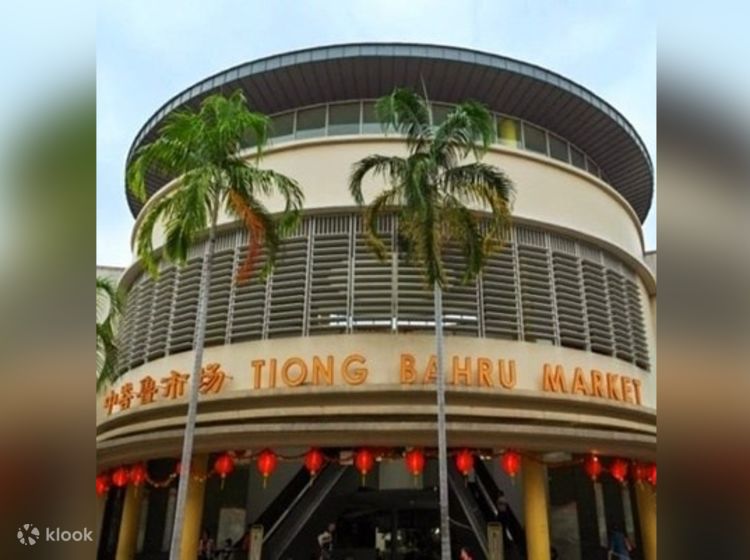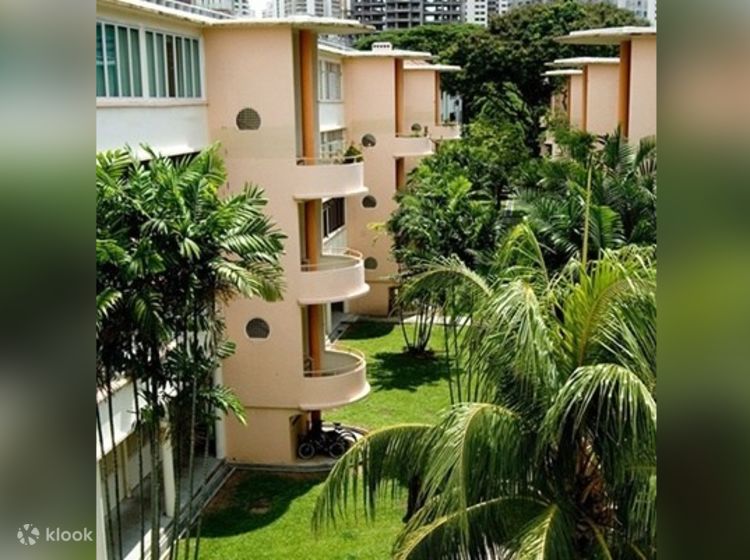หมู่บ้านจัดสรร ภาษาอังกฤษ: เรียนรู้เกี่ยวกับบ้านใหม่และชุมชนที่น่าอยู่
หมู่บ้านจัดสรร ภาษาอังกฤษ: เรียนรู้เกี่ยวกับบ้านใหม่และชุมชนที่น่าอยู่
หมู่บ้านจัดสรร ไม่ได้แปลว่า Village ❌
Keywords searched by users: หมู่บ้านจัดสรร ภาษาอังกฤษ Housing estate คือ, นิติบุคคลหมู่บ้านจัดสรร ภาษาอังกฤษ, หมู่บ้าน ภาษาอังกฤษ, เจ้าของโครงการบ้านจัดสรร ภาษาอังกฤษ, หมู่บ้าน ภาษาอังกฤษ ที่อยู่, village ภาษาอังกฤษ, ที่ดินจัดสรร ภาษาอังกฤษ, บ้านเดี่ยว ภาษาอังกฤษ
Understanding หมู่บ้านจัดสรร in English: A Comprehensive Guide
In the realm of urban development, the concept of “หมู่บ้านจัดสรร” holds a significant place in Thailand. Translated into English, it is known as “Housing Estate.” This article aims to delve into the intricacies of หมู่บ้านจัดสรร, exploring its key components, the planning and allocation process, its importance in urban development, and international perspectives on housing development. Additionally, we will discuss language challenges, community engagement, technological innovations, and future trends in this field.
Explaining the Concept of หมู่บ้านจัดสรร in English
Housing Estate Defined
In English, a “Housing Estate” refers to a residential development or community that consists of multiple homes, often organized in a planned and structured manner. These estates can vary in size, ranging from small-scale developments to expansive communities with various amenities.
Key Components of Housing Development
-
นิติบุคคลหมู่บ้านจัดสรร (Legal Entity of the Housing Estate):
The legal entity responsible for the housing estate is crucial in overseeing the development, ensuring compliance with regulations, and managing ongoing operations. -
เจ้าของโครงการบ้านจัดสรร (Project Owner of the Housing Development):
The project owner initiates and oversees the development, making key decisions about the design, infrastructure, and overall vision of the housing estate. -
ที่ดินจัดสรร (Allocated Land):
The land allocated for the housing estate is a foundational component. The planning and utilization of this land play a vital role in the success of the development. -
บ้านเดี่ยว (Single Houses) and ที่อยู่ (Addresses):
The individual houses within the estate and their respective addresses contribute to the identity and functionality of the community.
Overview of the Planning and Allocation Process
The planning and allocation process of หมู่บ้านจัดสรร involves meticulous considerations to create a sustainable and harmonious living environment. This process includes zoning, infrastructure development, and adherence to legal frameworks.
Importance of หมู่บ้านจัดสรร in Urban Development
Urban Development Impact
Housing estates play a crucial role in the overall urban development of a region. They contribute to:
-
Population Distribution: By providing well-planned residential spaces, housing estates help distribute the population more evenly, preventing overcrowding in specific areas.
-
Infrastructure Improvement: The development of housing estates often goes hand-in-hand with improved infrastructure, including roads, utilities, and public spaces.
-
Economic Growth: The construction and maintenance of housing estates stimulate economic activity, creating job opportunities and fostering local businesses.
Regulatory Framework and Guidelines for Housing Development
To ensure the orderly development of housing estates, Thailand has established a regulatory framework and guidelines. These guidelines cover aspects such as land use, building codes, environmental considerations, and community welfare. Compliance with these regulations is essential for obtaining necessary approvals and ensuring the long-term sustainability of the project.
Case Studies and Examples of Successful หมู่บ้านจัดสรร Projects
Examining successful housing estate projects provides valuable insights into effective planning, community engagement, and sustainable development. Case studies can offer inspiration and practical lessons for those involved in similar initiatives.
Language Challenges and Solutions
Language Barriers in Housing Development Communication
One significant challenge in housing development projects is communication, especially when stakeholders speak different languages. This can lead to misunderstandings, delays, and inefficiencies.
Providing English Language Resources for Stakeholders
To address language barriers, providing English language resources for stakeholders becomes crucial. This includes translating essential documents, guidelines, and communication materials into English to ensure that all parties involved can access and understand the information.
Strategies for Effective Communication in Multilingual Environments
Implementing strategies for effective communication in multilingual environments is essential. This may involve hiring bilingual staff, using translation services, or conducting language training programs for those involved in the project.
Community Engagement and Participation
Promoting Community Involvement in หมู่บ้านจัดสรร Projects
Community involvement is key to the success of any housing development project. Actively engaging residents in decision-making processes, seeking their input, and addressing their concerns fosters a sense of ownership and community pride.
Communicating Project Details and Benefits to Residents
Clear communication about project details and the benefits it brings to residents is vital. This involves conducting community meetings, distributing informative materials, and establishing open channels for dialogue between the development team and the community.
Facilitating English Language Training for Local Community Members
Recognizing the importance of English language proficiency, especially in an increasingly globalized world, facilitating English language training for local community members can empower them to actively participate in discussions, understand legal documents, and engage with a broader audience.
International Perspectives on Housing Development
Comparative Analysis of Housing Development Models Worldwide
A comparative analysis of housing development models worldwide allows stakeholders in Thailand to learn from global best practices. Understanding how different countries approach housing development provides valuable insights for improving local strategies.
Learning from Global Best Practices in Community Planning
Successful community planning is a universal goal. By learning from global best practices, Thailand can adapt and integrate effective approaches into its housing development projects, ensuring sustainable and thriving communities.
Adapting International Approaches to Local Contexts
While learning from international perspectives is valuable, it is equally important to adapt these approaches to the local context. Considering cultural, economic, and environmental factors ensures that housing development projects align with the specific needs and dynamics of the Thai community.
Technology and Innovation in หมู่บ้านจัดสรร
Utilizing Technology for Efficient Housing Development
In the digital age, technology plays a crucial role in optimizing housing development processes. From digital mapping and project management tools to advanced construction technologies, leveraging these innovations can enhance efficiency and accuracy in project execution.
Innovation in Infrastructure and Sustainable Design
Innovations in infrastructure and sustainable design contribute to the long-term viability of housing estates. Implementing eco-friendly practices, incorporating renewable energy sources, and prioritizing green spaces are integral aspects of modern housing development.
Integrating Smart Solutions for Enhanced Community Living
Smart solutions, such as smart home technologies and integrated communication systems, contribute to enhanced community living experiences. These innovations promote safety, convenience, and connectivity within the housing estate.
Future Trends and Challenges
Anticipating Trends in Housing Development and Urbanization
As urbanization continues, anticipating trends in housing development becomes crucial. This includes considering factors such as increased demand for sustainable living, the rise of smart cities, and the integration of technology in urban planning.
Addressing Environmental and Social Challenges in หมู่บ้านจัดสรร
Environmental sustainability and social responsibility are becoming central considerations in housing development. Addressing challenges related to waste management, energy consumption, and social inclusivity ensures that housing estates contribute positively to their surroundings.
Continuous Improvement and Adaptation in the Field
The field of housing development is dynamic, and continuous improvement is essential. Staying abreast of emerging trends, learning from both successes and failures, and adapting strategies accordingly contribute to the overall growth and resilience of the sector.
FAQs
Q: What is a Housing Estate?
A: In English, a Housing Estate refers to a residential development or community with multiple homes, organized in a planned and structured manner.
Q: Who is the Legal Entity of a Housing Estate?
A: The legal entity, known as นิติบุคคลหมู่บ้านจัดสรร in Thai, is responsible for overseeing the development, ensuring compliance with regulations, and managing ongoing operations.
Q: What Role Does the Project Owner Play in Housing Development?
A: The เจ้าของโครงการบ้านจัดสรร, or Project Owner, initiates and oversees the development, making key decisions about the design, infrastructure, and overall vision of the housing estate.
Q: How Does Language Impact Housing Development Projects?
A: Language barriers can lead to communication challenges among stakeholders. Providing English language resources, implementing effective communication strategies, and facilitating language training for local community members are potential solutions.
Q: Why is Community Engagement Important in Housing Development?
A: Community engagement fosters a sense of ownership and pride among residents. Actively involving the community in decision-making processes and transparently communicating project details contribute to the overall success of housing development projects.
Q: What Technologies are Used in Housing Development?
A: Technologies such as digital mapping, project management tools, smart home solutions, and sustainable design practices are commonly used to optimize efficiency and enhance the living experience in housing estates.
Q: How Can Housing Development Adapt to Future Trends?
A: Anticipating trends, addressing environmental and social challenges, and embracing continuous improvement are ways housing development can adapt to future trends and remain resilient in a dynamic urban landscape.
In conclusion, หมู่บ้านจัดสรร, when translated to Housing Estate in English, encompasses a broad spectrum of considerations. From legal entities and project owners to community engagement and technological innovations, every aspect plays a crucial role in shaping successful and sustainable housing developments. By understanding these intricacies and adapting to global best practices, Thailand can navigate the challenges and embrace the opportunities presented by the evolving landscape of urban development.
Categories: นับ 24 หมู่บ้านจัดสรร ภาษาอังกฤษ

[bānjatsan] (n) EN: housing development ; housing estate FR: développement immobilier [ m ] NECTEC Lexitron Dictionary EN-TH. housing development.บ้านจัดสรร คือ สถานที่หรือบริเวณที่มีผู้ประกอบการยื่นขออนุญาตจัดสรรแบ่งแปลงที่ดินสำหรับลงทุนปลูกสร้างบ้านเพื่อขายให้กับผู้ที่สนใจจะซื้อรวมถึงยังมีพื้นที่ต่างๆ รอบบริเวณโครงการที่ปลูกสร้างให้ผู้ที่เข้ามาอยู่ได้ใช้ประโยชน์ร่วมกัน ไม่ว่าจะเป็นถนนหนทางภายในหมู่บ้าน สวนสาธารณะภายในหมู่บ้าน ห้องออกกำลังกาย สระว่ายน้ำ พนักงาน …(พรอฟ’วินซฺ) n. จังหวัด, มณฑล, ภูมิภาค, เขต, บริเวณที่ต่ำกว่าบริเวณหนึ่ง, วง, -Phr. (the provinces ส่วนภูมิภาค), Syn. area. Nontri Dictionary.
โครงการบ้านจัดสรรคืออะไร
บ้านจัดสรรคือพื้นที่หรือพื้นที่ที่ผู้ประกอบการขออนุญาตให้จัดสรรและแบ่งแปลงที่ดินเพื่อนำมาลงทุนในการก่อสร้างบ้านเพื่อการขายแก่บุคคลที่สนใจซื้อ โดยที่นอกจากแปลงที่ดินสำหรับการก่อสร้างบ้านแล้ว โครงการบ้านจัดสรรยังมีพื้นที่รอบๆ ที่ให้บริการแก่ผู้ที่เข้ามาอยู่ในบริเวณนี้ ซึ่งรวมถึงทางเดินภายในหมู่บ้าน สวนสาธารณะ ที่ออกกำลังกาย สระว่ายน้ำ และบุคลากรบริการอื่นๆ เพื่อให้ผู้ที่อาศัยในนั้นสามารถใช้ประโยชน์ร่วมกันได้ ข้อมูลนี้เป็นไปตามวันที่ 3 กรกฎาคม 2023 สามารถเพิ่มเติมเกี่ยวกับโครงการบ้านจัดสรรเพื่อให้ความเข้าใจของผู้อ่านมีความลึกซึ้งมากยิ่งขึ้น.
Province อ่าน ว่าอะไร
หมายถึงอำเภอหรือพื้นที่ที่มีความสำคัญศักยภาพในการปกครองตนเอง โดยจัดอยู่ในระดับที่ต่ำกว่ารัฐ จังหวัดสามารถแบ่งออกเป็นอำเภอหรือเขตต่างๆ และมักมีการบริหารจัดการเองในด้านต่างๆ เช่น การบริหารงานศึกษา สาธารณสุข และพัฒนาเศรษฐกิจในพื้นที่นั้น ๆ คำว่า “จังหวัด” ยังสามารถใช้เพื่ออ้างถึงภูมิภาคหรือพื้นที่ที่มีลักษณะเฉพาะตัว เช่น “ตามท้องทะเลในจังหวัดตะวันออก” หรือ “ชาวชุมชนในจังหวัดเหลืองมีวัฒนธรรมพื้นบ้านที่น่าสนใจ”
District อ่านว่าอะไร
“District” is a term used to describe a specific geographical area or region within a larger administrative division, such as a province or state. It can refer to a town, locality, or a smaller region within a larger administrative boundary. The term is used to categorize areas into smaller manageable units for governance and administrative purposes. In Thai, the word “อำเภอ” (amphoe) is commonly used to refer to a district. This division of areas into districts helps in organizing and governing various regions efficiently.
Village อ่านว่าอะไร
นามว่า Village นั้นเป็นคำศัพท์ในภาษาอังกฤษที่มีความหมายเช่น “หมู่บ้าน” หรือ “ชุมชน” ซึ่งอ้างถึงสถานที่ที่มีคนอยู่ร่วมกันในพื้นที่ใหญ่ขนาดเล็ก ๆ อาจมีคำแนะนำเพิ่มเติมเกี่ยวกับคำนี้ที่มุมมองของสัตว์ที่อาศัยอยู่ร่วมกันเช่นกันในพื้นที่หนึ่ง หรืออาจหมายถึงกลุ่มของสัตว์ที่อยู่ร่วมกันในสิ่งแวดล้อมเดียวกันด้วย ความหมายของคำนี้อาจแตกต่างไปตามบริบทที่ใช้.
สรุป 9 หมู่บ้านจัดสรร ภาษาอังกฤษ



See more here: cacanh24.com
Learn more about the topic หมู่บ้านจัดสรร ภาษาอังกฤษ.
- บ้านจัดสรร แปลว่าอะไร ดูความหมาย ตัวอย่างประโยค หมายความว่า …
- FAB English – “หมู่บ้าน” ซึ่งเป็นบ้านจัดสรร เราเรียกว่า…
- “หมู่บ้าน” ซึ่งเป็นบ้านจัดสรร เราเรียกว่า village รึเปล่า
- บ้านจัดสรร คืออะไร – Life and Living
- PROVINCE แปลว่าอะไร ดูความหมาย ตัวอย่างประโยค หมายความว่า …
- district แปลว่าอะไร ดูความหมาย ตัวอย่างประโยค หมายความว่า พจนานุกรม …
See more: https://cacanh24.com/category/local blog





